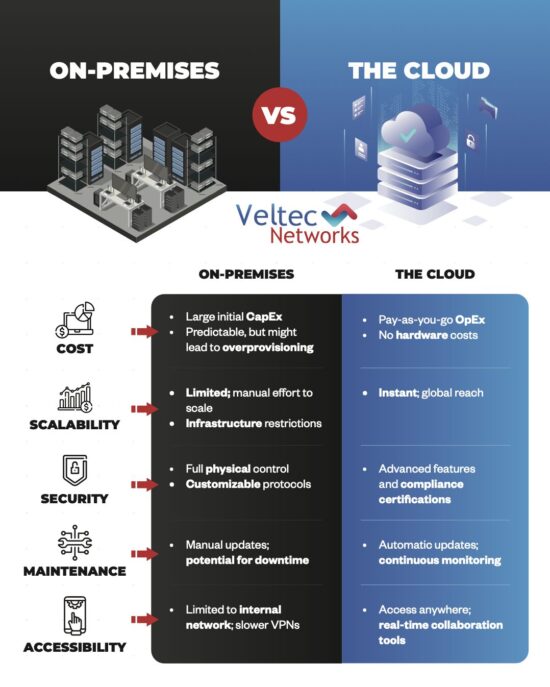A wireless connection is desirable for many businesses as employees depend more on mobile devices to work on the go. However, plugging in the old Ethernet cable manually still has its advantages, especially when your business handles confidential data.

When you set up your data system, new machines, or upgrade your technology, it’s necessary to know when a hardwired connection is necessary. Here are some of the situations where a wired option is better than depending on WiFi.
Securing Particularly Sensitive Data
Security is one of the most important reasons to use a wired connection. When your Internet connection is fully wired, there isn’t a way for someone to hack into it from a remote location. Large enterprises commonly use wired connections because of the inherent security it provides.
A wireless connection opens your business up to vulnerabilities – Especially if you use a wireless network that’s not well secured. The problem is even more serious when you consider that employees in BYOD situations may use their devices outside your organization’s network. Add the fact that mobile devices are generally harder to protect, and you can see why data is more secure on a closed, wired system within your office.
Moving Data from Local Databases
Another nice benefit of using a wired connection is that, when properly set up, it can be extremely fast. WiFi networks are reaching higher speeds now than in the past. However, in almost every case, a wired connection will still be superior in speed compared to WiFi.
This may not be so important if you only deal with a small amount of data and don’t often move it from place to place. However, if you manage large databases of information and use then to fuel complex programs that require a steady input of data, you really have no business using a wireless connection. Use wired connections for these intensive processes to ensure you have the bandwidth you require.
Controlling Data in Public Places
This topic is slightly related to the one above, but more focused on companies that either have, or work in public spaces where a variety of people connect to Wi-Fi networks. Guest networks help in this case. Nevertheless, others are still using the same Internet-service your company does. This can cause problems when you need to move data. If a lot of people are hopping online, this can slow down a back-end business process that depends on the network.
You need wired connections with bandwidth that can’t be affected by what other people are doing. You don’t want important tasks interrupted because a bunch of mobile devices are tapping into your wireless network.
Maintaining Ongoing Processes
Speaking of important tasks, companies that depend on data systems often rely on processes that simply can’t be interrupted. If so, there will be significant problems when backing up data, providing streaming services, and holding web conferences. These are situations you don’t want ruined by a poor Internet connection. Unfortunately, Wi-Fi connections aren’t always dependable. Interference, range and dead zones can all affect wireless networks.
If your business conducts important, ongoing processes that can’t be interrupted, you need a wired connection. A wired connection will always be more reliable than a wireless connection, and far less likely to fail.
Speedy Setup for Important Projects
A quick setup may require highly dependable, fast Internet connections. While wireless networks may seem fast on paper, the setup actually takes some time, especially when you have to connect a lot of devices to an encrypted network. A wired connection, however, is typically as simple as running an Ethernet cable to the nearest net port. And it has a lot of advantages when you are trying to quickly create a computer station for an event or set up a conference/presentation area.
Streaming Content to Customers
We touched on this briefly above, but it’s worth mentioning again. Streaming services to customers is complicated enough. Don’t make it more complicated by using a wireless connection. This can happen as businesses grows rapidly, and their systems quickly become more complex. The improvised solutions they use don’t always focus on streaming quality. As a general rule, let clients use wireless on their end if they want to, but keep all your server activities strictly wired to avoid slowdowns. This is true whether you’re streaming services or data into your business, as well as out.
Setting Up More Complex Private Networks
Let’s be clear—You don’t have to use just a wireless or wired network. Networks are designed so your business can set up a wireless network while still using a wired network for other data. The key is knowing what tasks should be relegated to a wired connection, which should be moved to a wireless network, and which can switch back and forth without affecting operations. Pick a hybrid approach, but pick one that’s right for your company.
The topics we described are a handy starting place. However, if you have questions about where to use wired connections for your business, Veltec Networks can help. We provide a variety of IT services and solutions in San Jose. Give us a call at (408) 849-4441 or send us an email at info@veltecnetworks.com to learn more.






